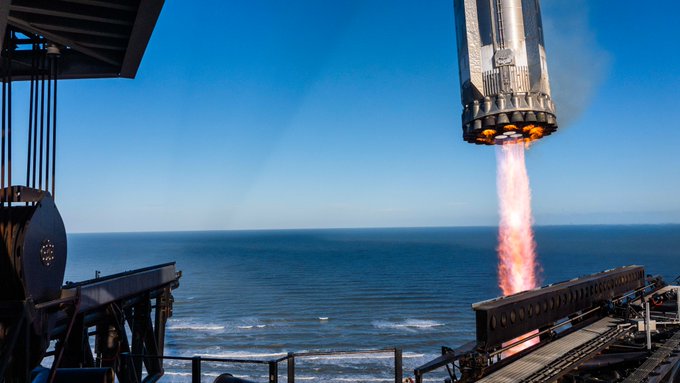SpaceX Starship Rocket Disintegrates in Space, Causing Flight Disruptions.
A SpaceX Starship rocket disintegrated just minutes after its launch from Texas on Thursday, creating significant disruptions to air traffic. The incident led to flight reroutes over the Gulf of Mexico as airlines scrambled to avoid potential debris. The rocket, which carried its first test payload of dummy satellites, lost communication with SpaceX’s mission control just eight minutes after liftoff from the South Texas launch site at 5:38 p.m. EST (2238 GMT).

The first Starship flight test of 2025 (SpaceX on X)
"We did lose all communications with the ship - that is essentially telling us we had an anomaly with the upper stage," confirmed SpaceX Communications Manager Dan Huot. Shortly after, it was confirmed that the rocket was lost. A video from Haiti showed bright orange orbs leaving smoky trails in the sky as the debris fell.
The Federal Aviation Administration (FAA) took immediate action by temporarily rerouting flights in the vicinity, resulting in delays at Miami and Fort Lauderdale airports. While the FAA had previously closed airspace during launches, it established a "debris response area" to prevent planes from flying through the danger zone.
Success is uncertain, but entertainment is guaranteed! ✨
pic.twitter.com/nn3PiP8XwG— Elon Musk (@elonmusk) January 16, 2025
Musk, SpaceX's CEO, posted a video on X showing the debris field, quipping, "Success is uncertain, but entertainment is guaranteed!"
SpaceX had touted the upgraded Starship as a “new generation ship with significant upgrades.” Unfortunately, an internal liquid oxygen fuel leak led to a pressure buildup, causing the rocket’s disintegration. The FAA is expected to launch an investigation, assessing whether any debris landed in populated areas or outside the designated hazard zone.
This incident marks a significant challenge for Musk's ambitious goal of conducting at least 12 Starship tests in 2023. "Nothing so far suggests pushing next launch past next month," Musk noted. SpaceX’s rigorous testing process has often led to dramatic failures, but this failure occurred during a phase that had previously been successfully completed.





















